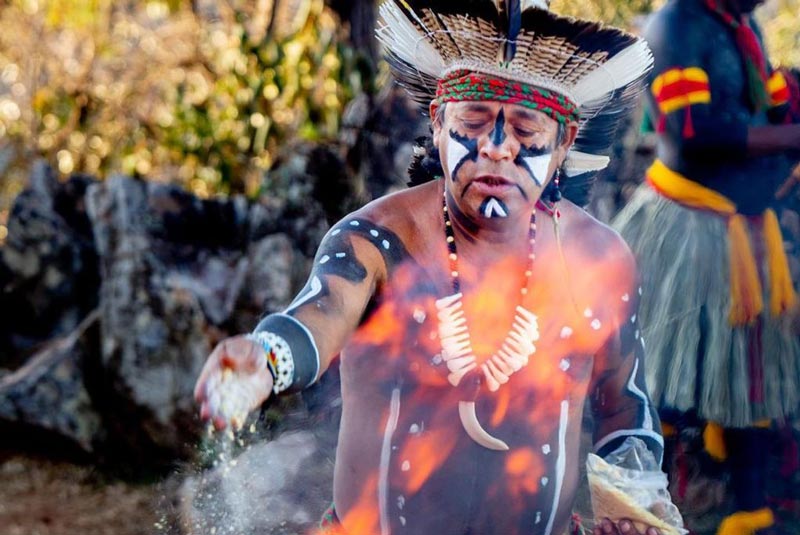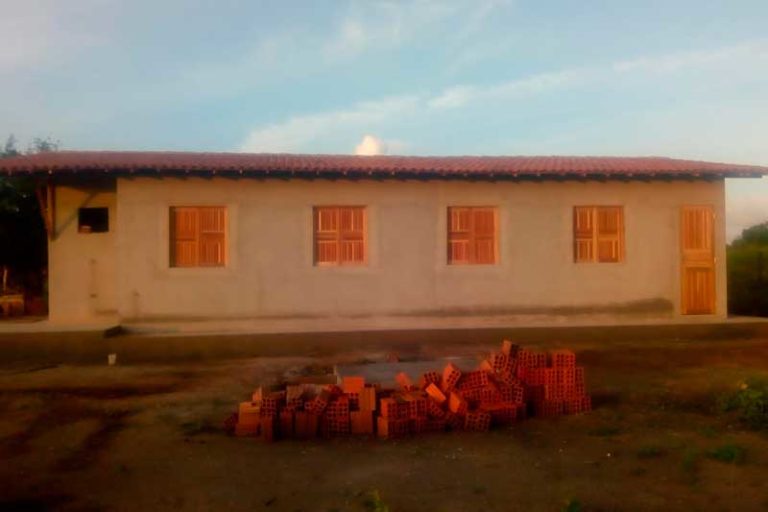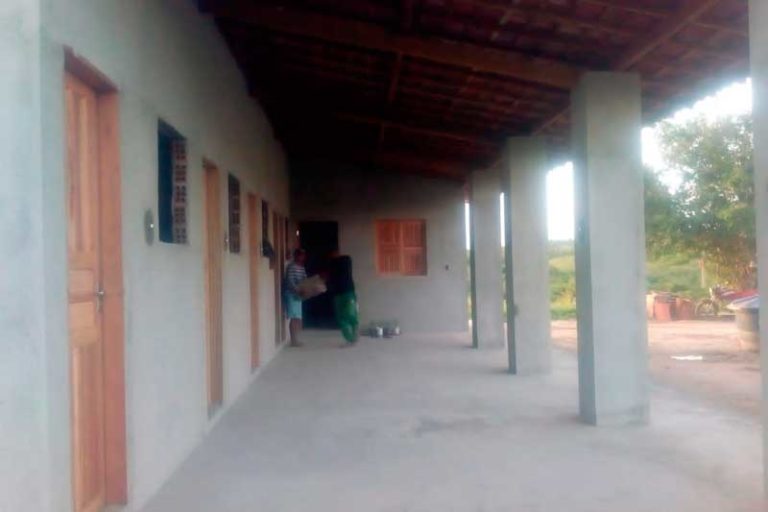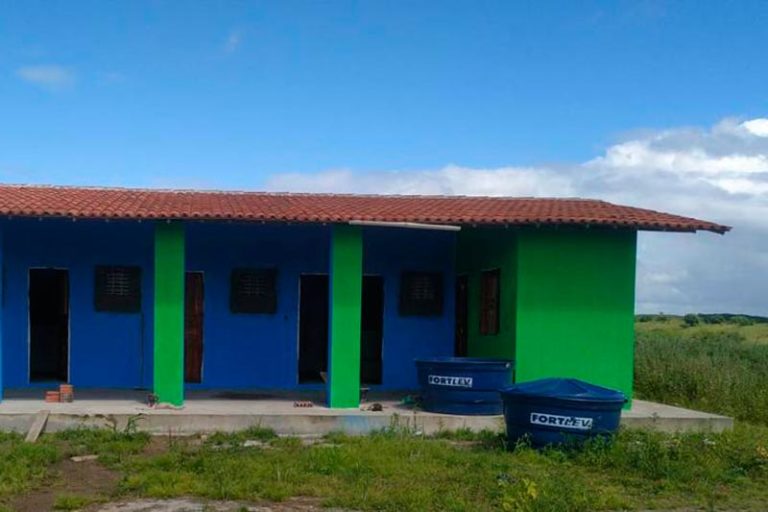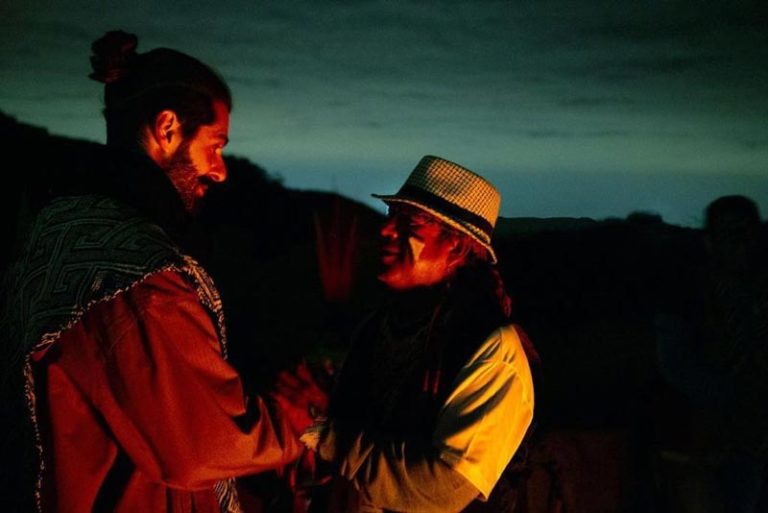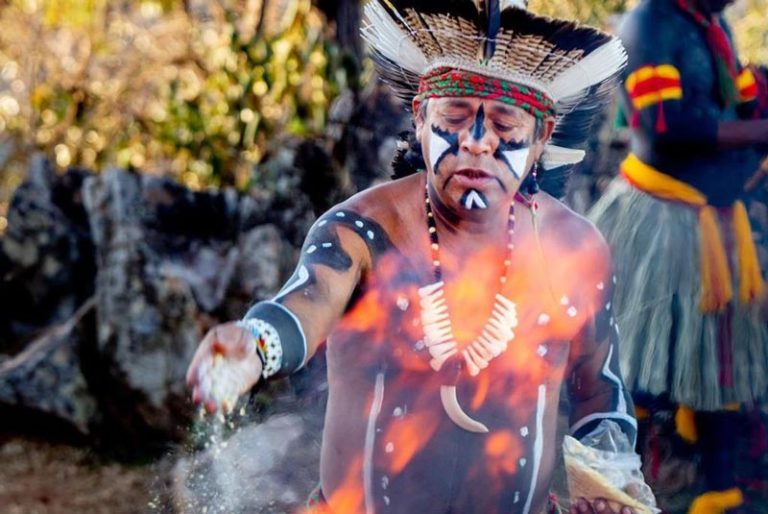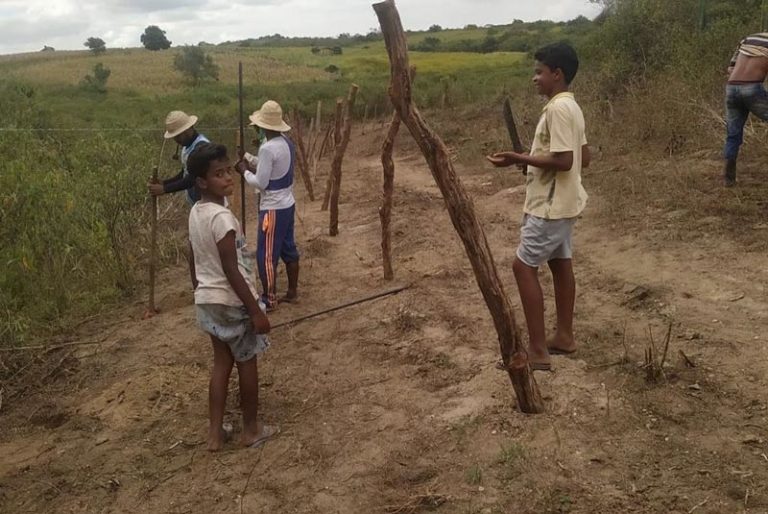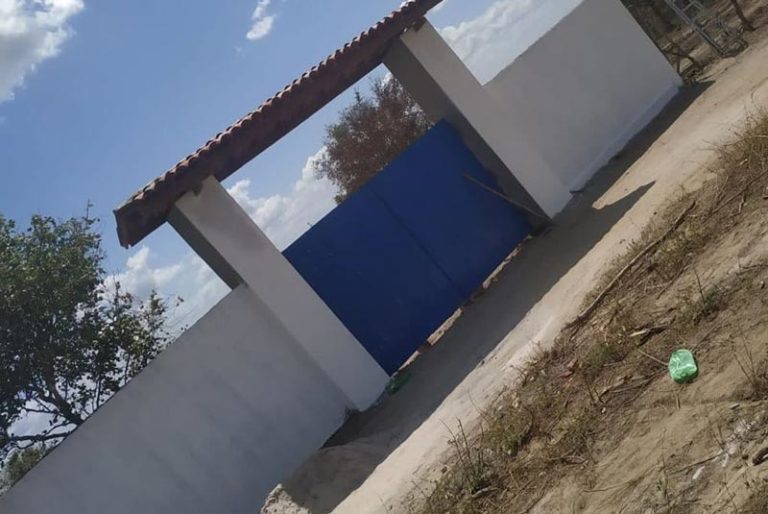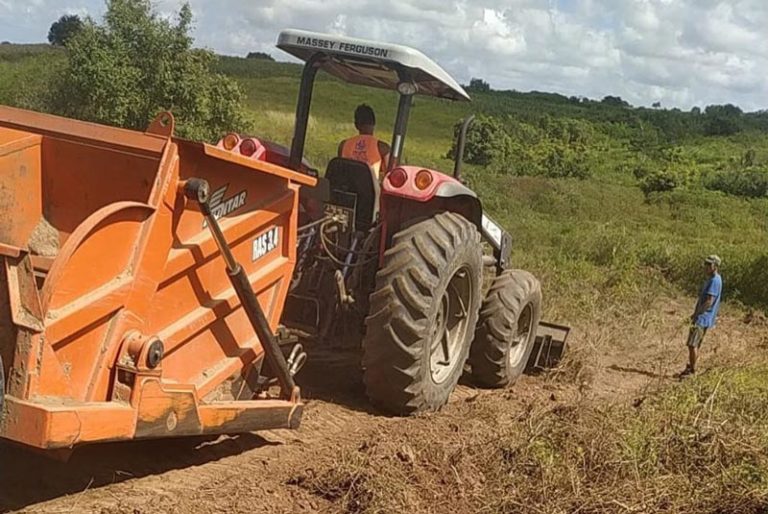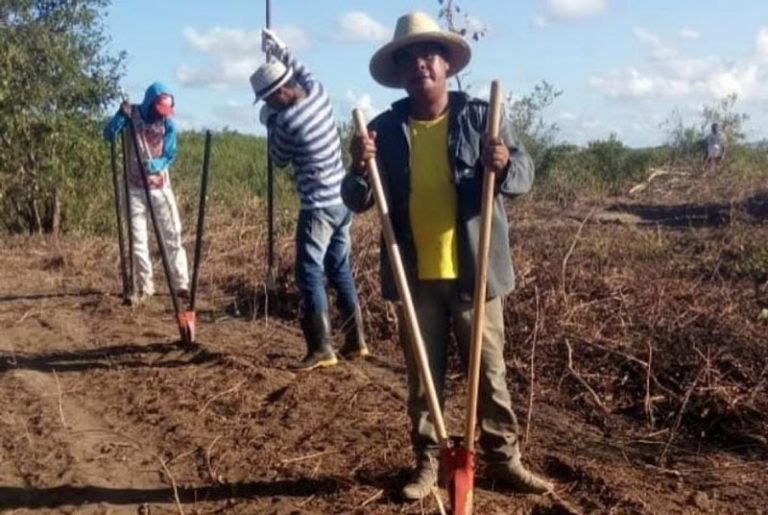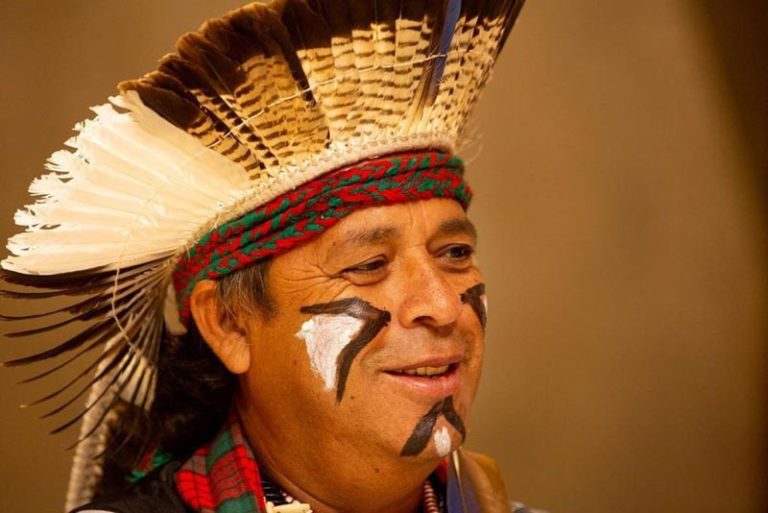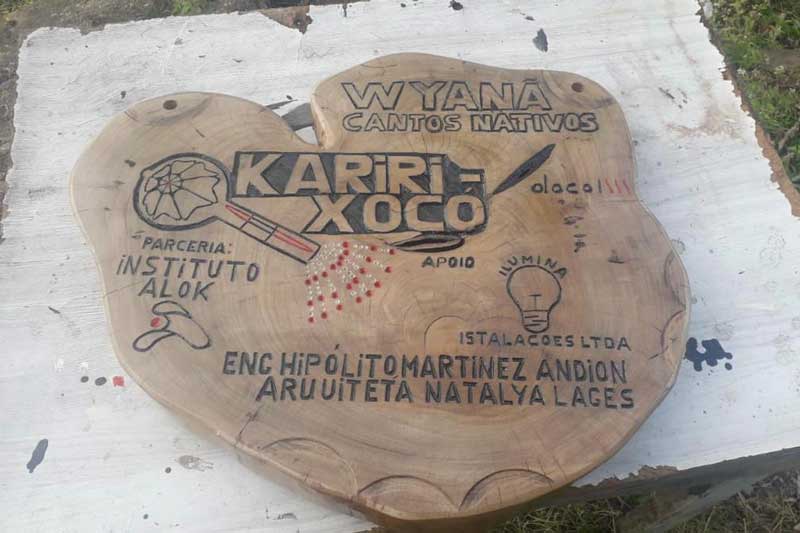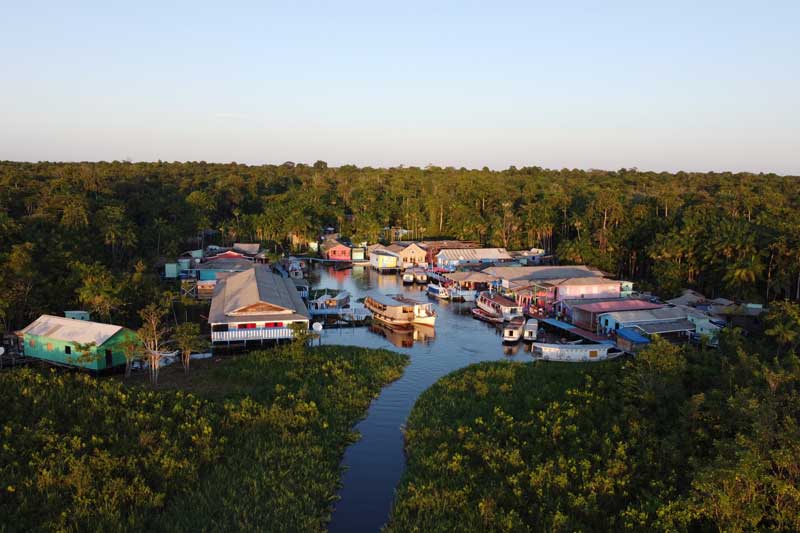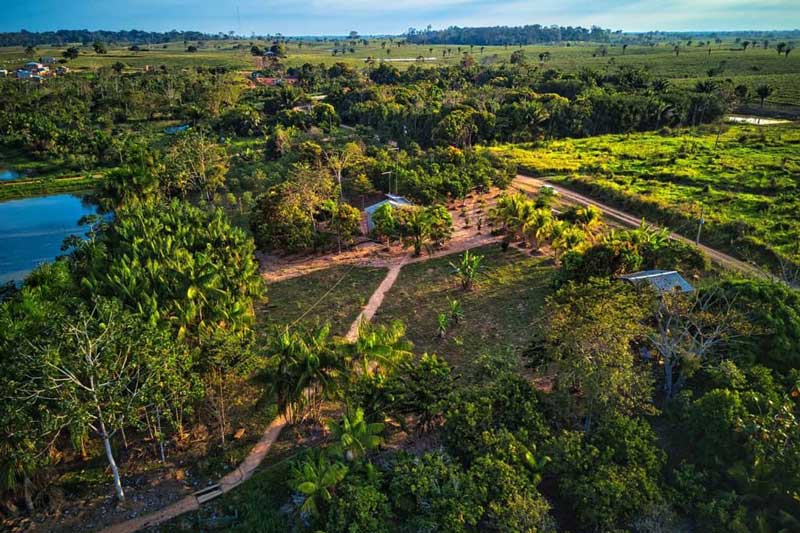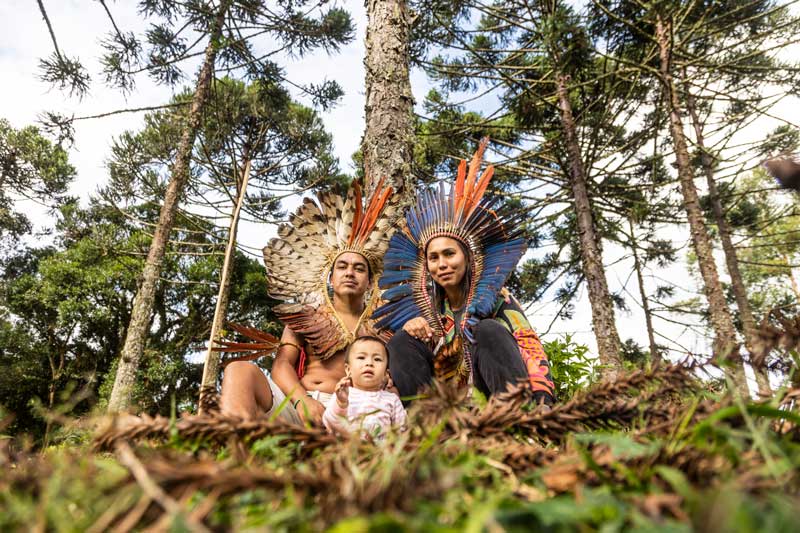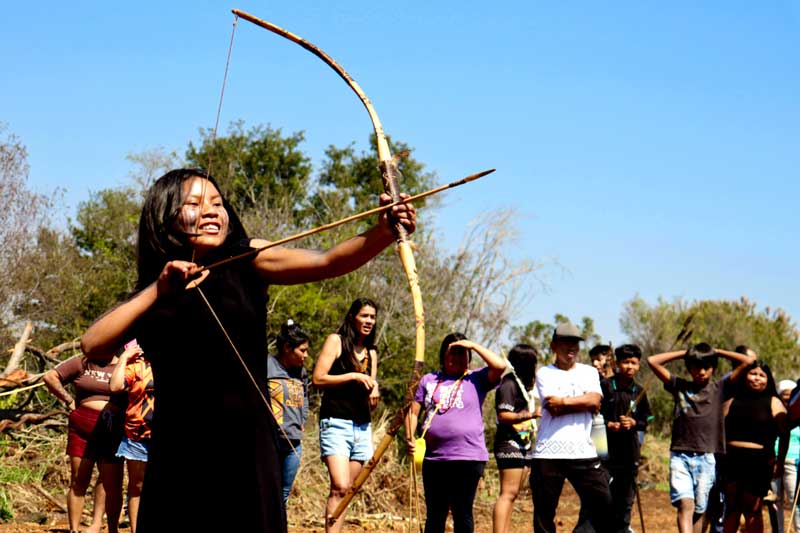The Alok Institute supports the creation of the Wyanã Native Songs Kariri Xocó space (in Alagoas), directed by Chief Wyanã Uia-Thê, which works with spiritual treatment, herbal baths, native medicine, songs and “mesada” (Jurema or Ayahuaska/Daime) and Shamanic healing wheel
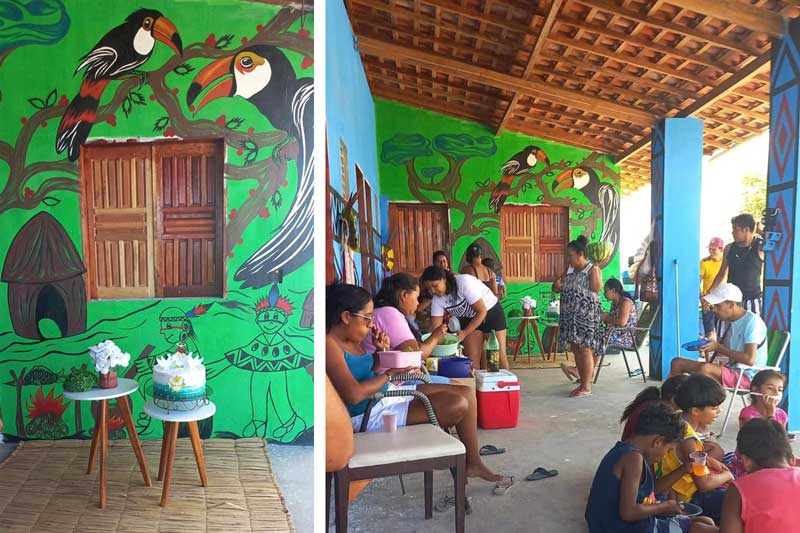
In this project, we have the support of ILUMINA Engenharia (Eng. Hipólito Martinez Andion), DOCOL and architect Natálya Lages.
Urban Encounters with Ancestry
In 2023, the Alok Institute renewed its partnership with the Cantos Nativos Group to support their performance of ritualistic and cultural practices in São Paulo. The Urban Encounters with Ancestrality project aims to create opportunities for the non-indigenous population to deepen their knowledge and experiences with Kariri Xocó culture and encourages the growth of the Group’s performances in public and private schools, fostering dialogue with children and adolescents.
The Kariri Xocó
Cariri, Kariri, Kairiri or Kiriri (from Tupi kiri’ri, “silent”) is the designation of the main family of indigenous languages in the hinterland of northeastern Brazil. Various local groups or ethnicities have been or are referred to as belonging to or related to it.
The Kariri Xocó represent the indigenous group formed by the fusion of the Kariri from Porto Real de Colégio (Alagoas) and part of the Xocó from the fluvial island of São Pedro in Sergipe. The daily lives of indigenous peoples are similar to those of low-income rural populations who work in agricultural and livestock activities in the region. The group seeks to preserve its roots by maintaining the Ouricuri ritual. Currently, 3500 individuals, on average, form the indigenous group. Other indigenous groups live in Colégio, including Fulni-ô, Natu, Caxagó, Aconã, Pankararu, Karapotó and Tingui-Botó.
Support you too:
*See other projects with Indigenous Peoples in the areas of Entrepreneurship, Social Gastronomy, and Human Development

